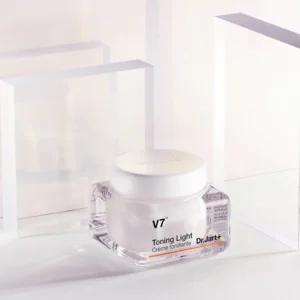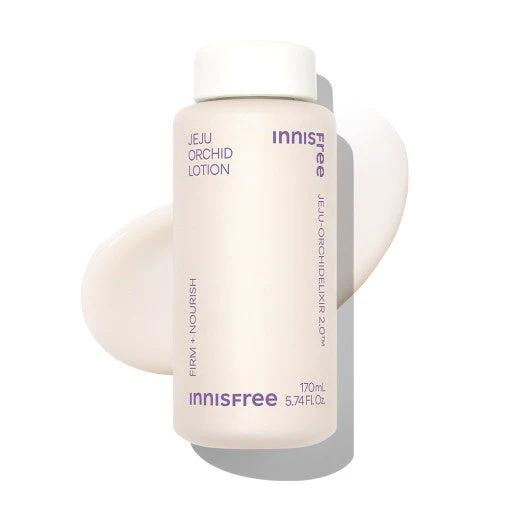The Ultimate Guide to Acne-Fighting Toners
Acne is an age-old skin concern, yet the modern arsenal of skincare solutions offers a beacon of hope. Among these, acne-fighting toners have emerged as unsung heroes. Balancing oil, minimizing pores, and soothing inflammation, toners can transform a chaotic complexion into a calm, radiant canvas.
Understanding Acne and Skin Types
The first step to tackling acne lies in understanding your skin type. Whether you have oily, dry, combination, or sensitive skin, each reacts differently to acne triggers. Acne-fighting toners cater to these specific needs by offering a balance between hydration and oil control, allowing your skin to breathe while healing from within.
What Causes Acne?
Acne forms when hair follicles become clogged with oil and dead skin cells. The overproduction of sebum, hormonal fluctuations, bacteria, and environmental aggressors exacerbate the condition. Consequently, this creates a perfect storm for blackheads, whiteheads, and cystic acne to thrive.

The Role of Skincare in Acne Management
Gone are the days when harsh scrubs were the go-to solution. Today, holistic skincare focuses on gentle yet effective methods. Acne-fighting toners play a pivotal role by refining pores and balancing the skin’s pH, setting the stage for serums and moisturizers to work more effectively.
What Is a Toner?
A toner is a liquid skincare product applied after cleansing and before moisturizing. Historically, toners were alcohol-heavy, causing dryness. Modern formulations, however, cater to all skin types, providing hydration, exfoliation, and antimicrobial benefits.
How Acne-Fighting Toners Work
Acne-fighting toners work by removing any lingering impurities that cleansers miss. They also shrink pores, reduce oil production, and deliver active ingredients directly to problem areas. Think of them as the silent partner in your skincare routine that ensures every subsequent step performs better.
Different Types of Acne-Fighting Toners
Toners come in various forms: hydrating, exfoliating, clarifying, and calming. Hydrating toners contain ingredients like hyaluronic acid, while exfoliating toners feature acids like glycolic or salicylic acid. Clarifying toners address oil control, and calming toners soothe redness and irritation.
Key Ingredients to Look For in Acne-Fighting Toners
The secret to an effective toner lies in its ingredients. Here’s what to scout for:
- Salicylic Acid
- Witch Hazel
- Tea Tree Oil
- Niacinamide
- Glycolic Acid
Salicylic Acid: The Acne Buster
Salicylic acid penetrates deep into pores to dissolve excess oil and dead skin. It’s often hailed as the gold standard in acne treatment. Used regularly, salicylic acid toners can visibly reduce the frequency and severity of breakouts.
Witch Hazel: Nature’s Astringent
Witch hazel is a natural astringent known for its anti-inflammatory properties. It tightens pores, reduces redness, and soothes irritated skin, making it an excellent component in any acne-fighting toner.

Tea Tree Oil: A Natural Antibacterial
With antibacterial and antifungal properties, tea tree oil combats acne-causing bacteria effectively. Toners containing tea tree oil offer a natural approach to keeping skin clear and healthy.
Niacinamide: The Skin Barrier Protector
Niacinamide helps strengthen the skin barrier, regulate oil production, and reduce the appearance of enlarged pores. It’s a multitasking powerhouse that pairs beautifully with other acne-fighting ingredients.
Glycolic Acid and Exfoliation
Glycolic acid, an alpha hydroxy acid (AHA), helps slough off dead skin cells, revealing brighter, smoother skin beneath. However, overuse can lead to sensitivity, so balance is key.
How to Incorporate Acne-Fighting Toners into Your Routine
Using a toner isn’t rocket science, but a little guidance never hurts:
- Cleanse your face thoroughly.
- Apply toner with a cotton pad or hands.
- Let it absorb before layering serums or moisturizers.
Consistency, not excess, is the secret to success.
Morning vs. Nighttime Usage
Morning application preps your skin against environmental aggressors, while nighttime use enhances cellular repair. Depending on your skin’s tolerance, twice-daily use may be beneficial, but once a day can suffice for sensitive skin.
How Often Should You Use Acne-Fighting Toners?
Every day? Twice a week? It depends. Highly exfoliating toners should be limited to 2-3 times weekly, while hydrating or calming toners can be safely used daily.
Combining Toners with Other Acne Treatments
Toners can complement treatments like benzoyl peroxide or retinoids, but caution is key. Overloading active ingredients can cause irritation. Always introduce new products gradually.
Potential Side Effects and How to Avoid Them
Side effects include redness, dryness, and sensitivity. To mitigate these:
- Avoid alcohol-based toners.
- Always patch test before full application.
- Follow with a moisturizer and sunscreen.
Patch Testing: Why It’s Crucial
A patch test prevents full-face disasters. Apply a small amount of toner on your inner forearm and wait 24 hours. No reaction? You’re good to go!
Best Acne-Fighting Toners on the Market
- Paula’s Choice Skin Perfecting 2% BHA Liquid Exfoliant
- The Ordinary Glycolic Acid 7% Toning Solution
- Thayers Witch Hazel Toner
Each of these has earned rave reviews for good reason.
Budget-Friendly Acne-Fighting Toners
Skincare doesn’t have to break the bank. Brands like Neutrogena, CeraVe, and Simple offer effective options under $15.
Luxury Acne-Fighting Toners Worth the Splurge
If you’re ready to invest, consider:
- Dr. Dennis Gross Alpha Beta Pore Perfecting Toner
- Sunday Riley Martian Mattifying Melting Water-Gel Toner
Sometimes, a luxury product feels like a spa day at home.
Can You Make Your Own Acne-Fighting Toner?
Yes! DIY recipes include diluted apple cider vinegar, green tea, and aloe vera. However, homemade products lack the stability and consistency of store-bought formulas, so proceed with care.
The Link Between Diet and Acne
Research suggests a high-glycemic diet may exacerbate acne. Adding more leafy greens, whole grains, and omega-3-rich foods can promote clearer skin.
Stress and Acne: An Unseen Connection
Stress triggers cortisol production, leading to increased oil production and breakouts. Techniques like yoga, meditation, and deep breathing can work wonders.
Myths About Acne-Fighting Toners Debunked
- Myth: Toners dry out your skin.
- Truth: Modern formulations hydrate while treating acne.
- Myth: You don’t need toner if you cleanse.
- Truth: Toners remove leftover impurities and prep skin for the next steps.
Expert Tips for Maximizing Results
- Avoid overuse.
- Layer toners under hydrating serums.
- Always wear sunscreen during the day.
The secret? Consistency and listening to your skin.
Frequently Asked Questions About Acne-Fighting Toners
Do acne-fighting toners work for cystic acne?
They can help, but cystic acne often requires medical-grade treatments.
Can I use an acne-fighting toner if I have sensitive skin?
Yes, opt for alcohol-free, calming formulas with soothing ingredients like aloe vera.
Are acne-fighting toners safe during pregnancy?
Check with a healthcare provider. Some ingredients, like salicylic acid, should be limited.
Can toners replace moisturizers?
No. Toners prepare the skin; moisturizers lock in hydration.
How long does it take to see results?
With consistent use, expect visible changes in 4-6 weeks.
Is toner necessary for everyone?
Not necessarily, but it can be a game-changer for acne-prone skin.
The Final Word on Acne-Fighting Toners
Acne-fighting toners are versatile, affordable, and easy to incorporate into your routine. Whether you’re facing stubborn breakouts or just want to maintain a balanced complexion, the right toner can truly be your skin’s best ally. Remember, patience pays off—consistency is your golden ticket to clearer skin.


